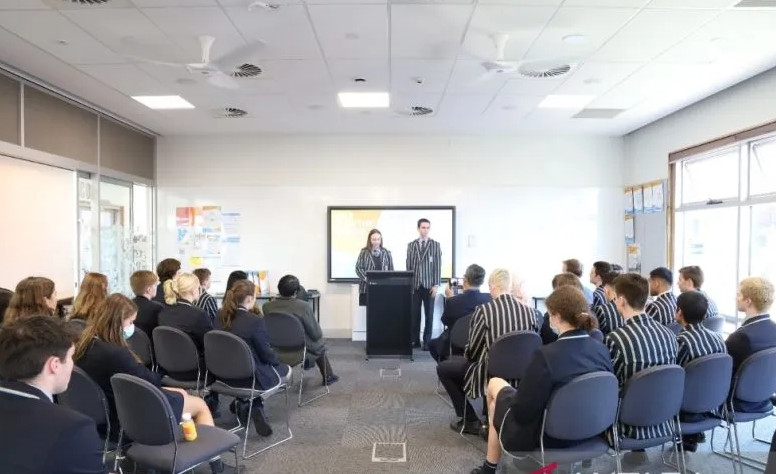Popular Reads
Top Results
Can't find what you're looking for?
View all search resultsPopular Reads
Top Results
Can't find what you're looking for?
View all search resultsMobilizing Indonesia’s netizens to promote language learning
In Australia, many universities have closed their Indonesian programs due to the sharp decline in student enrollment.
Change text size
Gift Premium Articles
to Anyone
W
hile we may be tempted to think that learning a second language is redundant due to Google Translate and new artificial intelligence (AI) technologies, we cannot rely on these devices alone. People need to understand other cultures to promote geopolitical stability and language learning is key here.
Could Indonesian studies be inspired by the impact that K-pop has had on motivating students to learn Korean?
Per a Modern Language Association report, the study of Korean in the United States has skyrocketed from around 5,211 in 2002 to nearly 14,000 in 2016, and continues growing. The same is true in other countries, such as in the United Kingdom, Australia, New Zealand and other countries.
It is a global phenomenon where the Korean language has seen an upsurge in students wanting to learn it and the major reason is Korean popular culture.
Many students now are non-heritage, which differs from a decade ago when Korean-language classes were filled by Korean-heritage learners. Having non-Korean heritage students in a Korean class in a US university back in the 1990s was a rare phenomenon, as reported by Forbes in 2019.
The rise of Korean-language teaching is correlated with the popularity of Korean popular culture, Korean dramas and bands worldwide. Korean-language learning globally has a close link with the Korean government’s investment in soft diplomacy.
Now, the Korean sector has reaped the benefits and one of these is the influx of Korean-language learners learning Korean. In Monash University, Australia, thousands of learners have enrolled to study Korean in recent years.
In this light, popular culture has been a soft but significant element in how a language will be studied by non-heritage and the second/foreign language learners. English gained traction thanks to American popular culture expanding its circle and now the Korean language with its popularity has a similar trajectory.
What opportunities can we use out of this?
The teaching of Indonesian overseas has seen a serious decline, particularly in Oceania. In Australia, many universities have closed their Indonesian programs due to the sharp decline in student enrollment, while in New Zealand, the biggest university in the country, the University of Auckland closed its Indonesian program in the early 2000s. This is particularly saddening given Indonesia and its population have a lot of potential yet to be explored.
Indonesians are among the biggest social media users. Indonesia has 217.53 million people and the population is predicted to reach 261 million by 2027, per Dataportal statistics.
As the younger generation is now becoming more interested in becoming digital creators, YouTubers and TikTokers, in our view it is timely to promote Indonesian-language teaching, particularly outside Indonesia.
Learning Indonesian will offer a lot of potential for these young digital creators to gain more followers. They can communicate in Indonesian, one of the biggest social media users’ languages and will likely get more engagement from Indonesian netizens or social media users.
We base this proposal on several digital creators who are non-native Indonesian speakers but speak Indonesian fluently and have used the language in their digital content. For example, Korean YouTuber Reomit with his 5.3 million subscribers, who broadcasts most of his YouTube channels in Indonesian.
His Indonesian was acquired when he was growing up in Indonesia. His podcasts are mainly broadcast in Indonesian and thus most of his subscribers are Indonesians.
In Indonesia itself, an Indonesian YouTuber, Atta Halilintar was once regarded as the most influential influencer with about 40.1 million followers with 4.08 billion total views per July 2023 data.
What does this mean for Indonesian-language learning?
It tells us that Indonesian social media users offer a big opportunity for Indonesian-language teaching, if promoted and approached well. Language has never been an isolated issue on its own. It is always related to other factors, and most importantly, economic forces.
Therefore, we can make use of this potential to promote and advertise Indonesian-language teaching to the younger generation who see social media to make their ends. This soft power can offer such great potential to promote Indonesia overseas. The diplomacy in Indonesian language overseas has been usually perceived from the military and “traditional” culture. We feel that it is very timely to approach it from a different perspective where the potential of Indonesian social media users is put at the center.
Perhaps, the narrative that we can propose is: “If you wish to be an influencer and want to have followers and subscribers, you need to speak Indonesian so you can attract followers and get more traction to have more views from Indonesian social media users”.
Language is a form of soft diplomacy and soft power, as has been proven by the spread of English through US pop culture and Korean by Korean pop culture.
And now more than ever, it is time to promote Indonesian as an important online language where the opportunity is yet to be explored.
***
Nelly Martin-Anatias is a lecturer at Massey University, New Zealand. Sharyn Grahan Davies is director of the Herb Feith Indonesia Engagement Centre and associate professor in the School of Languages, Literatures, Cultures and Linguistics, Monash University, Melbourne.










